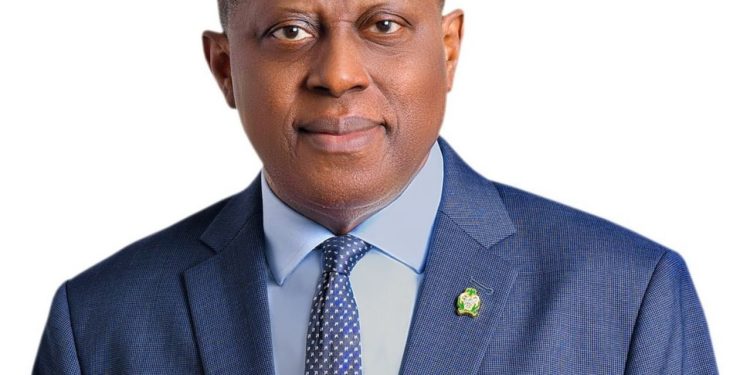The Monetary Policy Committee {MPC} of the Central Bank of Nigeria {CBN} held its 303rd meeting, the last of its fifth, between November 24 -25,2025 with chest-beating achievements. The bank got patted on the back with positive ratings by domestic financial technocrats and global financial institutions.
Predating the meeting, experts were divided in their expectations. However, the outcome, Cardoso revealed was in the best interest of the economy. The Committee he announced retained the monetary policy rate {MPR} at 27 per cent. It also retained cash reserve ratio {CRR} at 45 percent for commercial banks, and 16 percent for merchant banks. Liquidity ratio {LR} retained at 30 percent, and Standing Facilities Corridor {SFC} was adjusted to +50/-450 basis points around the MPR.
This decision follows a modest 50-basis point reduction in September 2025, the only downward adjustment ever under Olayemi Cardoso led-CBN monetary tightening cycle.
The Committee, the Governor said reviewed major global and domestic issues in the economies in arriving at the decisions. Mainly, he noted, was to sustain the progress towards achieving low and stable inflation. The Nigeria Bureau of Statistics {NBS} had earlier in the month announced a further deceleration, the seventh in a row, in inflation rate – 16.05% for the month of October.
Importantly, he said, the Committee noted the Bank’s sustained monetary policy tightening, stable exchange rate, increase in capital flows; and surplus current account balance as part of measures responsible for this feat.
Olayemi Cardoso while briefing the media noted the robust performance of external sector which posted a surplus current account balance, and a steady but robust accretion to reserves, thereby enhancing stability in the exchange rate and moderation in inflation.
However, this position though largely applauded by high-net worth financial experts, some felt the Bank would have made a modest adjustment to enable growth. Mr. Emmanuel Okafor, a stockbroker based in Abuja had expected between 25-30 basis points cut citing consistent inflation deceleration, and improved exchange rate.
Dr. Babatunde Agbi, senior partner at Agbi & Partners Consulting, wanted 100-200 basis points cut which he predicated on Nigeria’s improved macroeconomy and declining inflation. He also supported his position with improved foreign exchange liquidity, and $46.7bn foreign reserves. He quoted the CBN Governor to have attributed the development to investor confidence in Nigeria macroeconomic environment, removal from the Grey List by Financial Action Task Force {FATF}, and sustained reforms.
Dr. Muda Lawal, the Executive Director, Centre for the Promotion of Private Enterprise {CPPE} said “given Nigeria’s inflation trajectory, lowering the MPR now could worsen inflationary pressure”. While others believed the CBN may have missed an opportunity to stimulate the economy.
Governor Cardoso however sees the decision as prudent given the current economic landscape. According to him “hasty easing of the rate may erode the gains so far recorded”.
The Bretton Wood Institution, the World Bank, in the outgoing year scored the CBN Governor, Olayemi Cardoso 4.5 out of 6 in its Country Policy and Institutional Assessment (CPIA) report. A relatively high rating when compared to other developing countries. He also received an ‘A-‘ grade in Global Finance’s 2025 Central Banker Report Cards, highlighting his role in stabilizing the Naira, taming inflation, and supporting economic growth.
Fitch Ratings rated Nigerian banks as making significant progress in raising core capital to meet new paid-in capital requirements, while the CBN efforts are expected to support a recovery in capitalisation and provide the platform for business growth.
These ratings reflect the CBN as “a catalyst, using its convening powers to create the best of economic environment for the country and investors”.
The CBN, Cardoso promised, moving forward, will continue to be a “trusted, and respected confidant that will be a moving target, open, and consistent with policies to attract investor’s confidence”.
Ademola Bakare, a financial analyst writes from Abuja















